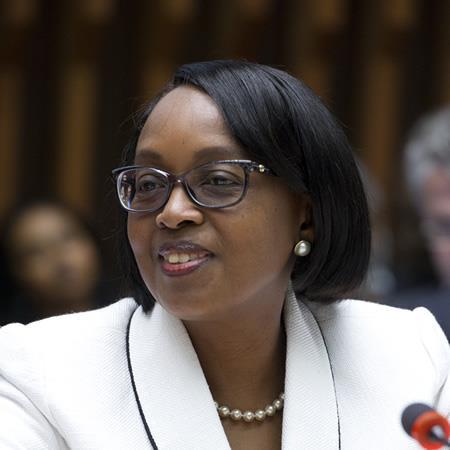The World Health Organisation (WHO) Regional Director for Africa, Dr. Matshidiso Moeti, on Saturday, May 13, 2017 visited Kinshasa, capital of DR Congo, to discuss with national authorities and partners ways to mount a rapid, effective and coherent response in order to stop the ongoing Ebola outbreak.

The visit follows notification by the DRC Government of an outbreak of Ebola virus disease in Likati health zone, Bas Uele Province, in the northern part of the country bordering Central African Republic. The Likati health zone is around 1400 kilometers from the capital. As of today, 11 suspected cases including three deaths have been reported.
Speaking at the meeting, Dr Moeti said: “I am here to assure the government of DR Congo that in collaboration with the UN system and other partners, we will work together to respond to this outbreak. WHO has already mobilised technical experts to be deployed on the ground and is ready to provide the leadership and technical expertise required to mount a coordinated and effective response. I encourage to public to work with the health authorities and take the necessary preventive measures to protect their health.”
On Wednesday, May 10 2017, a multidisciplinary team led by the Ministry of Health (MoH) and supported by WHO, under the new WHO Emergency Programme, and partners, was deployed to the Likati health zone, Bas Uele Province to conduct an in-depth field investigation. The health zone is situated in the remote, isolated and hard-to-reach northern part of the country, with limited transport and communication networks – factors that all impeded transmission of information about the suspected outbreak. Currently it takes about two to three days to reach the epicentre from Kinshasa.
The Global Outbreak Alert and Response Network (GOARN) has been activated to provide additional support if required. Reinforcement of epidemiological surveillance, contact tracing, case management, and community engagement are under way.
“We are grateful to WHO and other partners for the swift support in carrying out investigations that led to the confirmation of this outbreak,” said Dr. Oly Ilunga Kalenga, the Minister of Health of DR Congo. “A strong multi-sectoral response, better coordination, public awareness, community engagement and adequate resources will be critical in our efforts to stop the outbreak,” he added.
The first case occurred on April 22 in a 45-year-old male. He was transported by taxi to hospital and was dead on arrival. The driver also fell ill and later died. A third person who cared for the first case also became ill and has subsequently died. At present, 25 contacts of the second patient who died are being followed. Of the cases and deaths, one has been tested PCR-positive for Ebola.
This is the eighth outbreak of Ebola virus disease since its discovery in 1976 in the Democratic Republic of Congo. On November 20, 2014, in line with WHO recommendations, the Ministry of Health of DRC and WHO declared the end of the Ebola Virus disease outbreak that started on August 24, 2014 and resulted in a total of 38 laboratory confirmed cases and 28 probable cases including 49 deaths in Boende, Equateur province.
- 2014: 66 cases of EVD including 49 deaths diagnosed initially in Equateur province (Watsi Kengo, Lokolia, Boende, and Boende Muke)
- 2012: 62 cases including 34 deaths Orientale Province -Isiro (Bundibugyo virus)
- 2008-2009: 32 cases including 15 deaths in Kasaï-Occidental (Zaire virus)
- 2007: 264 cases including 187 deaths in Kasaï-Occidental (Zaire virus)
- 1995: 317 cases including 245 deaths, in Kikwit, Bandundu Province
- 1977: one case with one death in Tandala, Equateur Province
- 1976: 318 cases including 280 deaths in Yambuku – (Zaire virus)
According to the WHO, he full extent of the 2017 outbreak is still not yet clear, adding that extensive investigation and risk assessments are being conducted and the findings will be communicated accordingly. WHO adds that it does not recommend any restriction of travel and trade to DRC based on the currently available information.
